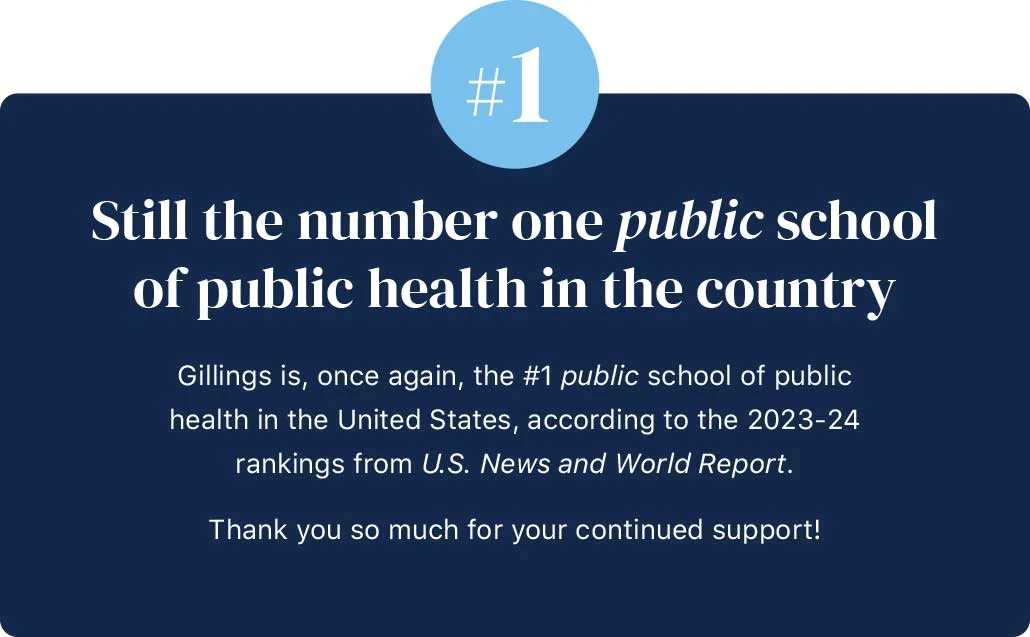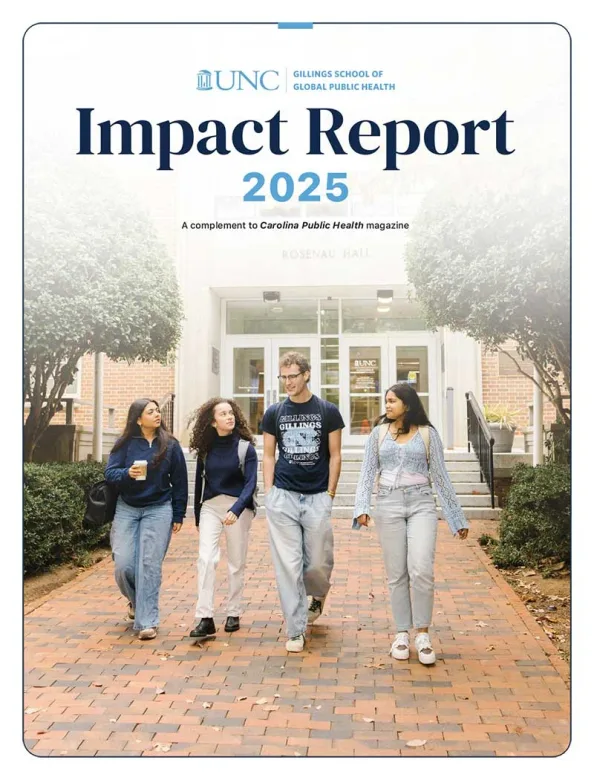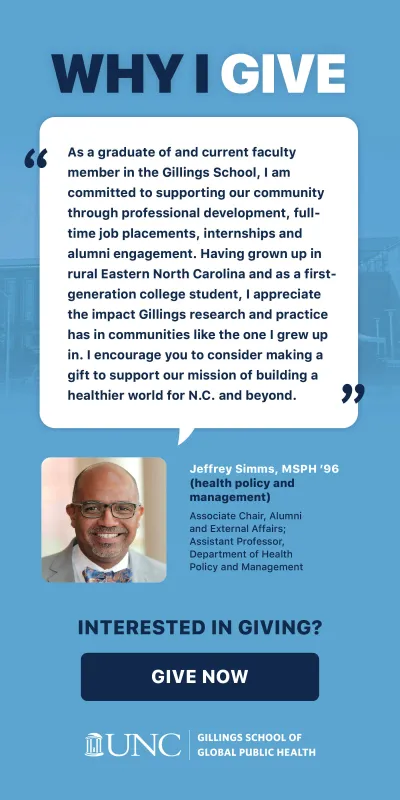THIS ISSUE
Public health saved your life today ... and you didn’t even know it.
issue:
Fall 2025
CATEGORY:
General
article summary
Gillings researchers drive everyday public health advances, from safer births and clean water to tobacco control, vaccines and pedestrian safety innovations.
Though its effects are often unseen, the work of public health is woven into the fabric of everyday life. At the UNC Gillings School of Global Public Health, researchers are driving innovations that help us live longer, healthier lives.
- The U.S. has one of the highest rates of preterm births among high-income countries, but experts across the Gillings School in maternal and child health, epidemiology, health behavior, and environmental sciences and engineering are working to improve them. This includes research on lowering the risks of chronic disease, improving maternal health care access and ensuring water is free of chemicals that can increase birth risks.
- The water in your faucet was probably clean this morning when you brushed your teeth, but disasters like Hurricane Helene have shown us how quickly water quality can be impacted, even in our own backyard. Public health work at the Gillings School is innovating new ways to ensure we have safe and sanitary water.
- Since they were introduced in 1968, seatbelts have saved more than 300,000 lives, according to data from the National Highway Traffic Safety Administration, and they’re just one example of the important public health interventions that keep us safe. Gillings School faculty in health behavior and the Injury Prevention Research Center are also collaborating with state and national agencies to promote traffic safety policies and design safer roads.
- Gillings School health behavior researchers have long been at the forefront of tobacco control. Their work helped inform the implementation of warning labels, smoke-free policies and youth prevention programs. Thanks to these efforts, rates of smoking in the U.S. have plummeted 73% among adults and 86% among youth, according to the American Lung Association.
- Vaccines remain one of public health’s most powerful tools, and Gillings School researchers in epidemiology and health behavior are leading efforts to improve vaccine access and trust. Thanks to vaccines and public health policies, deadly diseases like smallpox, measles, hepatitis, malaria, polio and so many more can now be a worry of the past — but only if we continue to support and promote vaccination and vaccine development.
- Crosswalk imagery is one of the many ways public health has helped to keep pedestrians safe. Faculty at the Gillings School affiliated with the Highway Safety Research Center have tested variations of universal pedestrian signs that were not language dependent, leading to wide adoption across the globe.




